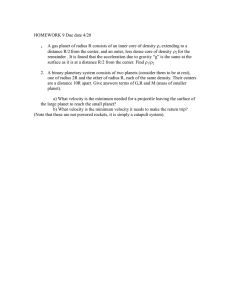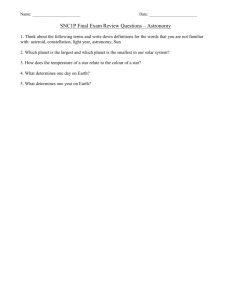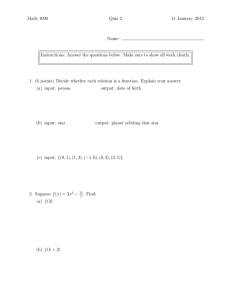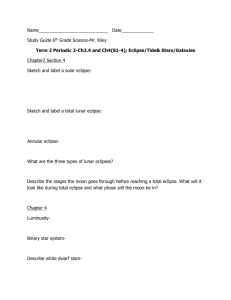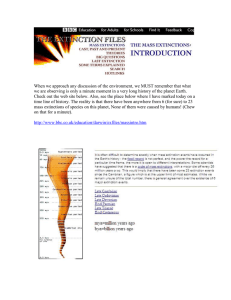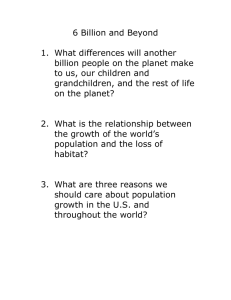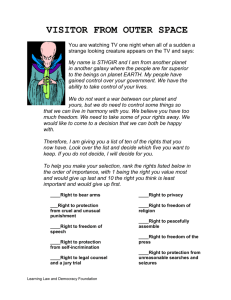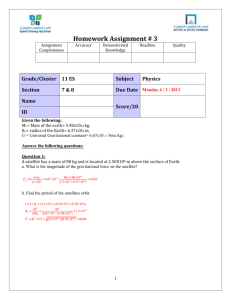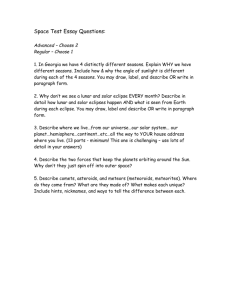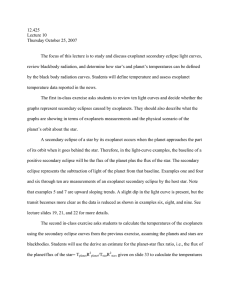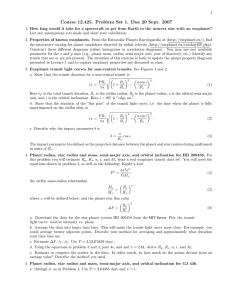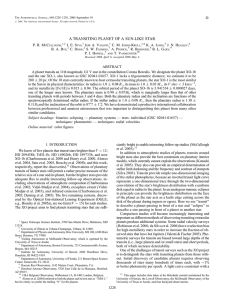Nature’s Grandest Sky Spectacles: Eclipses…and Transits, too Dr. Doug Duncan
advertisement
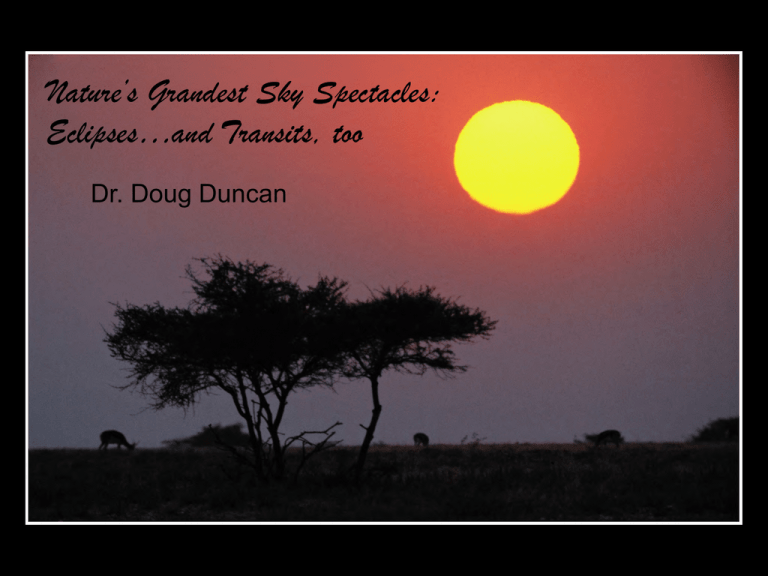
Nature’s Grandest Sky Spectacles: Eclipses…and Transits, too Dr. Doug Duncan Why do eclipses happen? Into the shadow… but it doesn’t disappear… Not to scale! Why is the moon red at the time of a lunar eclipse? -because the sky is blue! At what phase does a lunar eclipse occur? Where do you have to be to see it? At what phase does a solar eclipse occur? Where do you have to be to see it? Today…eclipses are mostly for fun! (we study the sun from space) show video What will we see May 20? June 5, 2012 Transit Technique • A transit is when a planet crosses in front of a star (or eclipse when behind) • Reduction in the star’s apparent brightness tells us planet’s radius • Period of dips tells us the planet’s distance • Mass can be learned from Doppler technique • Mass & Volume (from radius) tells us DENSITY 24 25 If a planet is1/10 the size (radius) of a star, what fraction of the light would it block? 1/100 of the light! Earth is 1/100 radius of sun so it blocks .0001 of the light 26 Kepler has found… 27 over 1000 planet candidates! 28 June 5, 2012! Transit of Venus 29 The End (Dec. 21, 2012?) 7 minutes of video are at MyDocuments/TRIPS/EclipseVideo/ Video_TS
